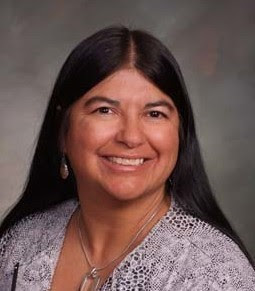An Interview with Catherine Strode
State Senator Irene Aguilar (D-32) has introduced a bill to ensure that the state’s 20 Community Centered Boards are subject to regular financial and performance reviews. CCBs, private non-profits designated as entry points into support systems for persons with intellectual and developmental disabilities, receive funding from state, federal, and local governments. Senator Aguilar is putting forth Senate Bill 16-038 to make CCBs subject to the Colorado Open Records Act. In this interview with Policy Outreach Specialist Catherine Strode, she says the bill was conceived out of controversy.
 Bill Calls For Transparency of Community Centered Boards
Bill Calls For Transparency of Community Centered Boards

An Interview with Catherine Strode
State Senator Irene Aguilar (D-32) has introduced a bill to ensure that the state’s 20 Community Centered Boards are subject to regular financial and performance reviews. CCBs, private non-profits designated as entry points into support systems for persons with intellectual and developmental disabilities, receive funding from state, federal, and local governments. Senator Aguilar is putting forth Senate Bill 16-038 to make CCBs subject to the Colorado Open Records Act. In an interview with Policy Outreach Specialist Catherine Strode, she says the bill was conceived out of controversy.
What prompted the bill?
“It was in response to the controversy at Rocky Mountain Human Services. Councilwoman Deborah Ortega had reached out to me because she was trying to get more information about what was going on. She was having trouble accessing information. She wanted to know if I had access to information that she did not. I realized I did not either. That was what brought the idea to my mind.”
Why is this bill necessary and how would it be implemented?
“Right now, the State Auditor does not feel that she has been given the authority to audit Community Centered Boards and there are no specific transparency laws. The Community Centered Boards are already required to do an annual financial audit and present it to Health Care Policy and Financing. I’m asking to see whether the financial audit might be made public record, since it’s already collected. If deficiencies have been found in the state audit, they get reported to the Committees of Reference until they have all been resolved. The Auditor would periodically go out and reassess whether the deficiencies have been resolved, until they are all gone. It would mean they’re asked to do one in the next five years, and then as frequently as they think they need, to review a sample of their records to see whether all the services are being delivered as required by state and federal law.”
Does the bill apply only to financial accountability or to performance also?
“CORA (Colorado Opens Records Act) would obviously apply to any records that they maintain, which would potentially cover both. This (bill) is adding the performance audit portion to it. The performance audit would be the accountability for how the funds are spent. If families are seeing practices they think are abusive, and want to see if their concerns are validated, that family would be able to bring it to the attention of their Community Centered Board or their lawmakers.”
What will be the administrative costs of implementing this?
“The audit is funded by the state government. It would probably be part of the appropriations for the Community Centered Boards. It really depends on how many Coloradans request how much information. I would expect that the actual administrative costs of making the records available would be limited. It’s hard to say because it depends on how many people ask for it. In terms of the costs, our Community Centered Boards get tens of millions of dollars and this is potentially a drop in the bucket compared to the funds they receive. Just finding one episode where funds are being inappropriately used would mean that it paid for itself.”
What will be the administrative costs of implementing this?
“I think the bill is a start. I think that, hopefully, the experience with Rocky Mountain Human Services will help all the Community Centered Boards recognize the significance of the oversight responsibility they have and execute it with more diligence. I think it would behoove interested members of the public to avail themselves of the opportunity that exists to attend public board meetings and always be willing to ask questions. I think you can always do more to ensure accountability but I think that a random audit is a good start. I think no Colorado legislator would dispute it is our responsibility to care for people with IDD. By ensuring we have a good level of transparency and accountability, if the growth and needs of the population continue to rise we can ask the public for further support (when we need it) with a straight face, knowing we’re being good stewards of our money.”
 Catherine Strode is Advocacy Denver’s Communications and Policy Specialist. She holds a Masters degree in Public Administration with an emphasis in Health Care Policy. Catherine publishes Policy Perspective, featuring interviews with state policy makers on issues that affect the work and mission of Advocacy Denver.
Catherine Strode is Advocacy Denver’s Communications and Policy Specialist. She holds a Masters degree in Public Administration with an emphasis in Health Care Policy. Catherine publishes Policy Perspective, featuring interviews with state policy makers on issues that affect the work and mission of Advocacy Denver.
